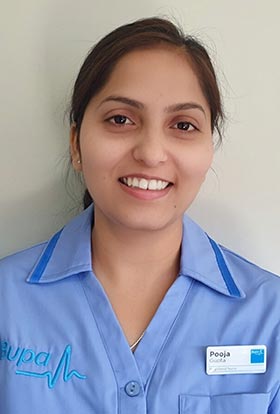
Recently registered Nepalese nurse Pooja Gupta enjoys the respect and autonomy given to nurses in New Zealand, compared to her home country.
It has taken Gupta nearly three years to successfully register as a nurse in New Zealand, after COVID-19 delayed an already bureaucratic process.
But it’s been worth it – she has finally landed her first nursing role at a private aged residential care (ARC) facility in Christchurch, and is loving the status and leadership opportunities of being an RN in New Zealand.
In Nepal, Gupta said, hospital hierarchies were entrenched, with doctors at the top. In New Zealand, nurses had more autonomy and decision-making powers. “Back home, we always had doctors advising us, but in New Zealand we don’t need the doctors to do everything – we can do some things ourselves.”
Job satisfaction
This autonomy made the profession enjoyable, she said. “It gives us job satisfaction, and people appreciate our work.”
Gupta trained in her home town of Butwal – three years at Mayadevi Technical College of Nursing for her basic nursing certificate, then another three years at the Sanjeevani College of Medical Sciences for her bachelor of nursing. In between, she worked for two years at the town’s private Crimson Hospital as a medical and surgical nurse.
She travelled to New Zealand in 2018, to meet and join her husband Pradeep, who was already living here. It was a marriage arranged by their families, as is traditional in Nepal, but the couple had come to know each other on social media before deciding to go ahead with the marriage.
Gupta studied English for two months online, successfully passing the occupational English test (OET) required for health workers in 2019, while working full-time as a health-care assistant (HCA) in an aged residential care (ARC) facility in Kurow, just out of Oamaru.
In 2019, she applied to the Nursing Council for registration. After five months, they advised she needed to complete a competency assessment programme (CAP). The nine-week course at Ara Institute of Technology was then delayed for several months with the arrival of COVID-19, but she finally completed it by the end of 2020 – two and a half years after her arrival.
Finally, in January this year, she successfully registered as a nurse. It has been worth the wait, she said. “Although it took a long time, I never felt like giving up as my husband was there to support me every time.”
Compared to her caregiving role, Gupta says she now spends less time talking with residents and more on providing the medication and “paperwork”.
Working in a rest-home environment was a new experience, as in Nepal elderly people normally stayed with their families. “They’re not really common in Nepal. When people grow old, the families look after themselves, we don’t really have rest homes.” But she enjoyed working with older people – “they’re like our parents and grandparents”.
‘Learn as much as I can’
After two or three years, Gupta hoped to move to a hospital nursing role, as this was what she trained for originally. “In hospital, you get a chance in a diverse environment, I want to learn as much as I can,” Gupta said. “Nursing is very different here than in Nepal.”
In New Zealand, Gupta said people had generally been friendly. She worked with other nurses from Nepal and was also part of an extended Nepalese community in Christchurch – but misses her family and friends back home.
Her previous manager, Natalie Seymour – chair of the NZNO College of Gerontology Nursing – said she was “one of a kind.
“She’s one of those nurses that just stands out and you instantly know that she is going to make a difference.”
As a hospital aide in aged care, Gupta demonstrated compassion and expertise in her work, quickly taking to the aged-care environment despite having no previous experience.
Her road to working as an RN in New Zealand had been “complicated and, at times, could be seen as demoralising”, Seymour said. “She has held herself with grace throughout and I am proud to have been her colleague.”
Gupta said that as a child, she spent a lot of time at the local hospital, as it was close to where her family lived so was like their local drop-in clinic. She and her sister Seema always wanted to be nurses – and both have achieved their dreams. Seema is a nurse in Australia.




